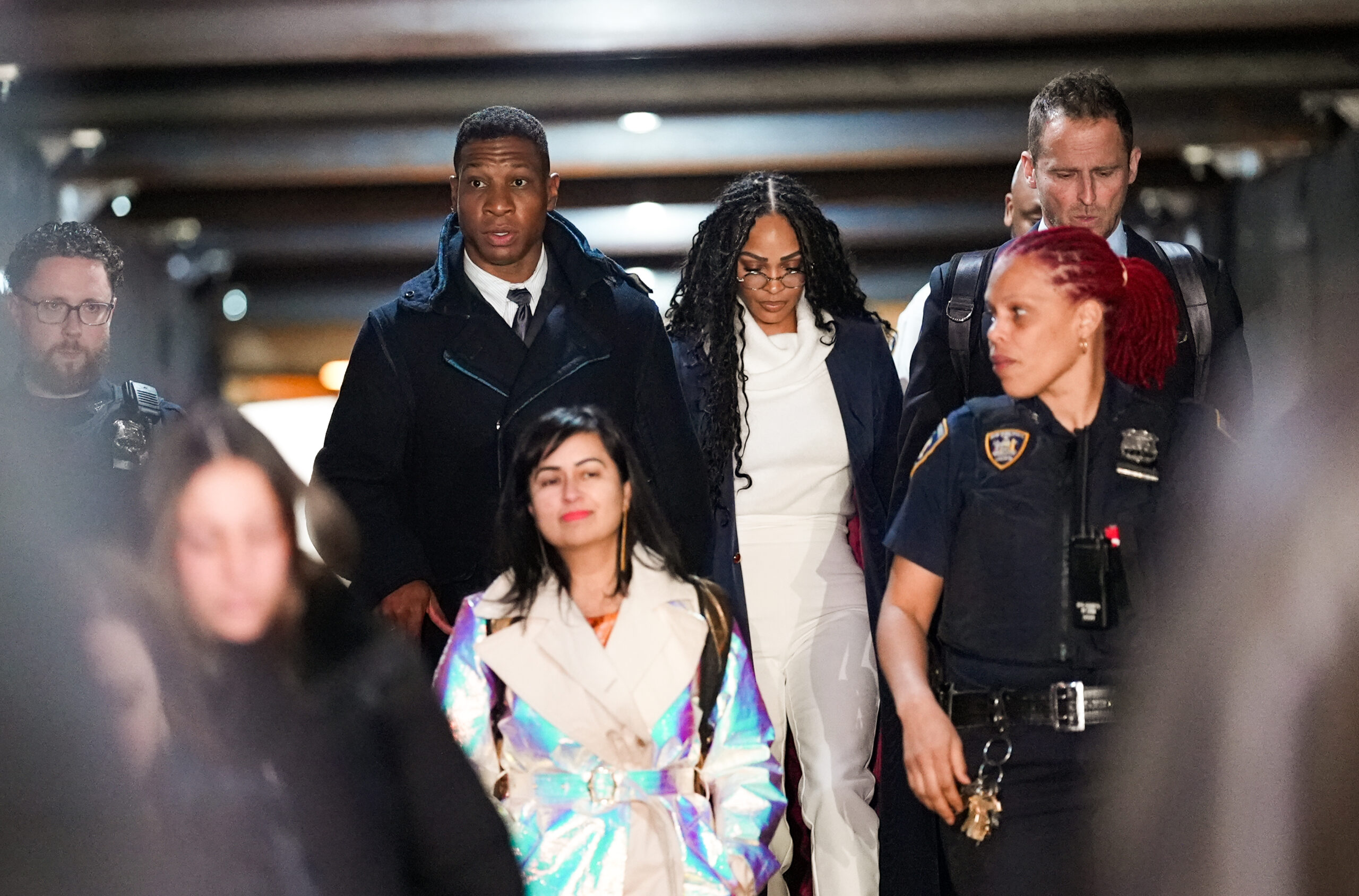I sat with my sister in my dining room with a warm light overhead and a dozing baby in the next room, as I pressed play on the first part of ABC’s exclusive interview with actor Jonathan Majors.
Hours after the interview’s release, there seemed to be a public consensus: the interview was an unsuccessful public relations effort. As my sister and I watched Majors respond to the questions, all we could do was shake our heads and guffaw in exasperation. When it seemed like it couldn’t get worse, the second part of the interview showcased the actor’s clarification on his Coretta Scott King comments.
Misguided Aspirations
Majors’ arrest and ensuing charges are from a domestic dispute between he and ex-girlfriend Grace Jabbari. In court proceedings, Jabbari revealed a recording of a conversation with Majors. In it, Majors tells her that he is a “great man” and, as his partner, she should be more like Coretta Scott King and Michelle Obama.
“It was me trying to give an analogy of what it is I’m aspiring to be,” he explained to Linsey Davis “You know, these great men, [Martin Luther King Jr.], President [Barack] Obama, and trying to give a reference point to that.”
Majors is currently in a new relationship with actress Meagan Good. The “Harlem” star was present for the interview and regularly attended the court hearings. When Davis asked Majors how he would describe their relationship, he responded with a smile.
“She’s an angel,” Majors said. “She’s held me down like a Coretta. I’m so blessed to have her. The relationship is still fresh, but I think I found her.”
It was at this moment that my sister and I, almost in unison, groaned in agony. The “Black women will hold you down” mantra is triggering for many. By comparing Coretta Scott King to Good, Majors is projecting the “ride or die” narrative onto a civil rights icon. If Good is Majors’ Coretta, what exactly does that say about King?
Many of Majors’ critics point out the irony of him choosing to date a white woman and asking that she emulate a Black woman. They’ve also questioned the timing of the beginning of his relationship with Good, which seemingly coincided with the revelation of his charges.
More Than a Prop
MSNBC Analyst Brittany Packnett Cunningham took to social media to address Majors’ references to Coretta Scott King. In a video, Cunningham apologizes to the late activist for the disrespect.
“This message is for Coretta Scott King,” Cunningham begins. “Girl, I am so sorry. Somehow, we have allowed a certain segment of Black men to look at the lessons of your life and think ‘wow, she is the OG of ride-or-die chicks.’ They made you the patron saint of clean up women.”
Majors insinuated that he is a great man, similar to Martin Luther King Jr.. In her video, Cunningham describes that line of thinking as the “most embarrassing part.”
“If they think their girlfriends are Coretta, then they think that they’re Martin,” Cunningham says. “I don’t know when sleeping with a white woman and allegedly putting your hands on her became equivalent to helping lead a bus boycott.”
Along with many others, King’s daughter seemingly took issue with Majors’ use of her mother’s name and legacy. While she didn’t mention his name in the social media post, she discouraged anyone using her mother as “a prop.”
My mother wasn’t a prop.
— Be A King (@BerniceKing) January 9, 2024
She was a peace advocate before she met my father and was instrumental in him speaking out against the Vietnam War.
Please understand…my mama was a force.
Here’s what I wrote about her a few years ago: https://t.co/qdCj7K5vXD#CorettaScottKing pic.twitter.com/8vhKBFm6oJ
“My mother wasn’t a prop,” Bernice King wrote on her X, formerly known as Twitter, account. “Please understand … my mama was a force.”
Black Women Deserve More
In light of Majors’ recent troubles, it’s easy to think that if he would have just picked a Black woman from the start that this wouldn’t have happened to him. However, that notion begs the question: why wouldn’t a Black woman’s pain invoke the same reaction from society?
Majors’ demise serves as a painful reminder of the commodification and fetishization of Black women. Oftentimes, Black women aren’t seen as whole, complex beings. The stereotypes, even those that seem positive, are unhealthy and limiting. They are an unnecessary and unrealistic weight that bears down on us.
Black women shouldn’t feel forced to live in the shadow of any other woman’s greatness. We aren’t here simply to be supporting actors in someone else’s story. We are not a collection of Corettas or Michelles. To ask us to be is forcing a singularity that we don’t deserve.
